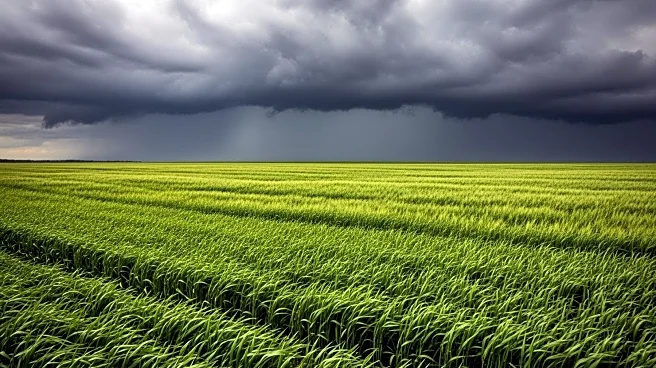What's Happening?
Russia has declared a federal level emergency in the Rostov region's agriculture sector following severe weather conditions that have led to significant crop losses. The region had previously declared a state of agricultural emergency in June due to drought, allowing farmers to seek compensation. The federal emergency declaration aims to provide further support, including increased limits on preferential loans and the potential prolongation of existing loans for affected farms. Approximately 1 million hectares of crops have been lost or damaged due to drought and frosts, impacting Rostov's status as a top wheat-producing region.
Why It's Important?
The federal emergency declaration in Rostov highlights the severe impact of climate-related challenges on agriculture, a critical sector for Russia's economy. The loss of crops not only affects local farmers but also has broader implications for food supply and prices. The situation underscores the vulnerability of agricultural regions to extreme weather events, which are becoming more frequent due to climate change. The measures taken by the Russian government aim to mitigate financial losses for farmers and stabilize the agricultural sector, which is vital for both domestic consumption and export markets.
What's Next?
The Russian government is expected to continue monitoring the situation closely and may introduce additional support measures if necessary. The prolonged loans and increased financial aid could help farmers recover and prepare for future planting seasons. However, the ongoing climate challenges may prompt a reevaluation of agricultural practices and investment in more resilient crop varieties and technologies. The situation may also influence Russia's agricultural policies and international trade relations, particularly if crop shortages affect export commitments.









